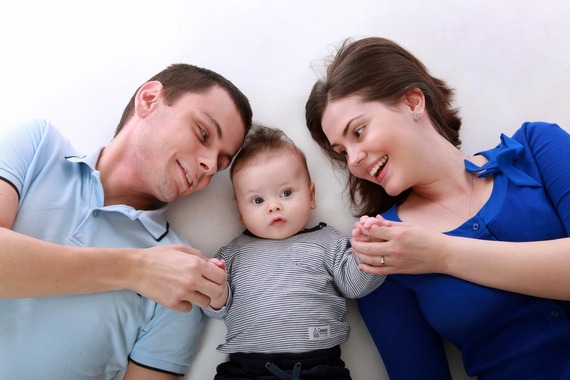Co-Authored by: Valerie Young, JD, Outreach director for CPS's Caring Economy Campaign. Valerie's work appears extensively in social media, @WomanInDC on Twitter, Your (Wo)Man in Washington on Facebook, and blogging for Mom-mentum.org. She also has written for The Shriver Report, Brain/Child Magazine, and is frequently featured on BlogHer.com as well as the CPS and CEC blogs.
Millennials now make up the biggest age group in the US workforce. Those from age 18 to 35 outnumber boomers as the "largest living generation" according to US News & World Report. They have their own ideas about when, where, how, and how much to work and parent. But because business and government policies based on old cultural expectations about gender and work haven't kept up with decades of social change, there's a serious disconnect between what millennials want and what they encounter in the workplace.
Will their influence finally bring change to the outdated status quo?
THE GREAT RECESSION
Millennials entered the job market in great numbers during the Great Recession, and their economic anxiety continues to run high. Their careers have frequently been slow to launch and both marriage and parenthood are often pushed back in hopes of more favorable conditions.
Even though the recession officially ended years ago, according to survey data compiled for the Center for American Progress, financial predictability and economic security still top the list of millennials' priorities. Most millennials say they are dissatisfied with current economic performance, with nearly a quarter reporting they are very dissatisfied. Less than half feel that their incomes are keeping up or getting ahead of inflation.
Millennials also report feeling that public and private institutions favor the privileged and powerful, and that average people now face a lack of economic opportunity.
AN UNCERTAIN FUTURE
Wages have been stagnant for decades and workers have been displaced as the manufacturing sector shrinks. It is no longer a foregone conclusion that children's standard of living will surpass that of their parents. In fact, the likelihood has dropped to about 50%, or a coin toss. Economic growth is slowing, and income inequality is rising. Half of all working adults receive no benefit from economic expansion because the gains are so unevenly distributed. Millennials say that "the rules in America have changed."
There is evidence that supports that view. US workers are putting in longer hours, and most resident adults in households with children are employed, even when the kids are very young. Millennials tend to have children later, right when their career responsibilities are picking up speed. Their own parents are living longer, so today's workers are likely to find themselves squeezed between caring for aging parents and their children at the same time. Nanette Fondas, writing in the Harvard Business Review, calls this "a work/life tsunami." She found that "38 percent of U.S. Millennials say they would move to another country with better parental leave benefits. That's a shocking proportion, and it should disturb everyone who cares about U.S. companies and competitiveness."
US POLICIES LAG BEHIND OTHER NATIONS
The Center for Partnership Studies' Social Wealth Economic Indicators (SWEIS) show just how serious this problem is. These new metrics show that the US spends less than half the resources in family supports (such as paid parental leave and paid sick days) as a percentage of GDP than comparable countries. The US devotes the least to early childhood education and care, even though this is a cornerstone for economic competitiveness that leverages the potential of future workers, increases women's labor force attachment, and allows parents to provide both cash and care for their kids.
Social Wealth Economic Indicators also show that the US has done little compared to other nations around the world when it comes to elder care. Comparable nations invest 2 or 3 times what the US does in long term care for our rapidly aging people. Moreover, direct care workers in the US caring for our elders at home or in group facilities, earn less per hour than in other developed nations.
MILLENNIALS CAN MAKE THE DIFFERENCE
This systemic devaluation of care drags down our economy, threatens peoples' ability to keep their families on an even keel financially, exacerbates gender inequality, and increases income disparity. It also places the United States economic future in danger.
Not only is failing to support care terrible for human well-being; it is terrible for national competitiveness in our post-industrial age. Social Wealth Economic Indicators show that economies can produce nothing unless the individuals that make them up get the care they need across the lifespan. From childhood to old age, we will be either receiving or giving care. Societies can only deliver on the promise of shared prosperity and equality of opportunity when the need for care within families and from others is acknowledged, valued, and planned for.
Like every generation before them, millennials want to shape the culture to fit their ambitions and values. If they join together to demand that the economic value of care work, be it in homes or in the workplace, is recognized, we'll all be much better off.
Riane Eisler, JD, is president of the Center for Partnership Studies (CPS) and author of The Real Wealth of Nations: Creating a Caring Economics.
Valerie Young, JD, is Outreach Director for CPS's Caring Economy Campaign.

